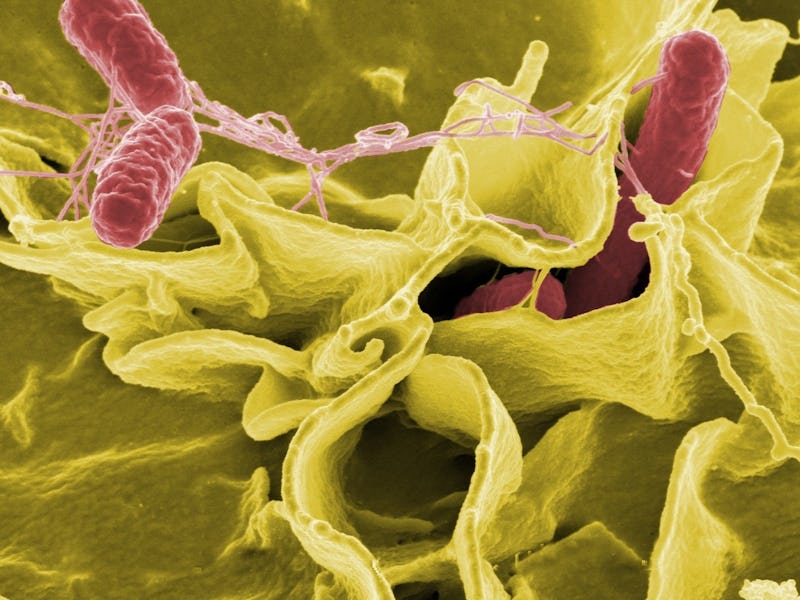‘Dots’ Fight Drug-Resistant Germs With Light
Researchers find that preliminary studies show a new bacteria-slaying tech is showing impressive effectiveness.

Light might be the next weapon used in the medical struggle with drug-resistant bacteria, as the University of Colorado Boulder website reported Monday that some of the school’s researchers are developing an adaptive, light-activated form of nanotherapy.
Potentially lethal forms of bacteria like salmonella and E. Coli can become resistant to antibiotic treatments. But according to the article Photoexcited quantum dots for killing multidrug-resistant bacteria —published Monday in Nature — indicates, researchers at Colorado U’s Department of Chemical and Biological Engineering and the BioFrontiers Institute are able to harness light-activated, semiconductor-like nanoparticles known as quantum dots to aid in the fight. The CU team announced its “dots” were able to kill more than 90 percent of drug-resistant bacterial cells grown in a lab.
Approximately 20,000 times smaller than a human hair, quantum dots are able to “create highly specific interactions within the cellular environment that only target the infection,” said Department of Chemical and Biological Engineering—and study senior author—Prashant Nagpal to the school’s website on Monday, “While we can always count on these superbugs to adapt and fight the therapy, we can quickly tailor these quantum dots to come up with a new therapy and therefore fight back faster in this evolutionary race.”
The research found that while nanoparticles built from silver and gold had also proven effective at fighting antibiotic resistant infections, the metals were also capable of damaging surrounding cells. The quantum dots, on the other hand, can be targeted at particular germs—activated by light and then modified by adjusting the wavelength of light to only allow for the attack of infected cells. Such an advanced treatment could hypothetically shrink or even eradicate the side effects associated with other treatments.
“Antibiotics are not just a baseline treatment for bacterial infections, but HIV and cancer as well,” said Department of Chemical and Biological Engineering assistant professor Anushree Chatterjee—also a senior author of the study—to the University of Colorado Boulder’s website, adding the warning that “Failure to develop effective treatments for drug-resistant strains is not an option, and that’s what this technology moves closer to solving.”